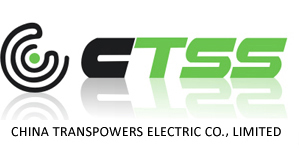Home >> News Center
Hitachi Energy and Clever to accelerate sustainable mobility in Denmark
2021-11-26 Hitachi ABB
Ground-breaking EV fast-charging station combines renewable energy with advanced energy management and optimization solutions and battery energy storage system
Share this page
Hitachi Energy has announced a new sustainable mobility partnership with Clever, Denmark’s pioneering fast-charge EV operator. The goal is to ensure that Denmark’s world-leading EV adoption is powered by 24/7 renewable electricity, underpinned with industrial-scale energy storage. In 2020, Denmark announced1 a goal of adding at least 775,000 EVs or hybrid vehicles by 2030.
As the world commits to replacing fossil fuels with renewable sources of energy, battery energy storage is becoming a vital tool for accelerating the transition towards a carbon-neutral future. In early 2022, Clever will launch a fast-charging EV station pilot in Køge, a main transport and commuter link to Denmark’s capital of Copenhagen. It will be one of the most advanced charging stations in the world and one of the first to include Hitachi Energy’s large-scale e-meshTM PowerStoreTM battery energy storage system (BESS).
By incorporating Hitachi Energy’s BESS into the design, Clever is able to deliver a sustainable mobility solution to its customers that maximizes the use of clean electricity (from wind and solar) for charging – making it available whenever needed (24/7). Through this innovative partnership, Hitachi Energy and Clever are paving the way to the electrification of the transportation sector, enabling the effective integration of renewables and ultimately, the realization of a carbon-neutral society.
Designed to integrate directly into the local electricity grid, the BESS will provide ancillary services where power from several distributed sources, including the BESS and AC chargers can be sold back to the main grid. This enables Clever to recoup investment quickly. During periods of high usage on the grid, the BESS can also be engaged directly to charge the electric cars.
“Hitachi Energy is committed to advancing a sustainable energy future for all, and this creative partnership with Clever shows what is possible when we combine core technologies and elements of the energy transition together: renewable generation, electrification, and energy storage,” said Massimo Danieli, executive vice president and managing director of Hitachi Energy’s Grid Automation business unit. He continued, “Our partnership with Clever underscores our efforts to provide access to electricity at speed and scale, delivering innovative solutions that benefit people both globally and locally.”
For commuters and other drivers who use the station, the experience is intended to make charging easy and accessible. When the Køge station opens it will be able to simultaneously charge 16 electric cars across 8 stations, as part of Clever’s impressive footprint. Clever currently offers charging at around 2,500 open, public charging points throughout the country, and before the end of 2025, Clever will establish an additional 10,000 new, public charging points.
The model is another example of Denmark’s leadership in the energy transition and committing to net-zero emissions by 2050. According to the IEA2, “Denmark is now widely recognized as a global leader in integrating variable renewable energy while at the same time maintaining a highly reliable and secure electrical-power grid.”
Hitachi Energy’s recently updated next generation e-meshTM portfolio is uniquely suited for the EV charging market, which requires advanced digital technologies to control, optimize, and coordinate the vehicle charging process. Hitachi Energy’s e-mesh solution is expected be a core solution for e-mobility growth by better integrating battery energy storage systems and local distributed energy resources (DERs), which have many of the same requirements as a complex microgrid. As use cases evolve, e-mesh provides a platform to address a range of needs, including managing large EV fleet depots, coordinating fast-charging stations, and optimizing EV recharging.


 Hydro Turbine Generator Units
Hydro Turbine Generator Units
